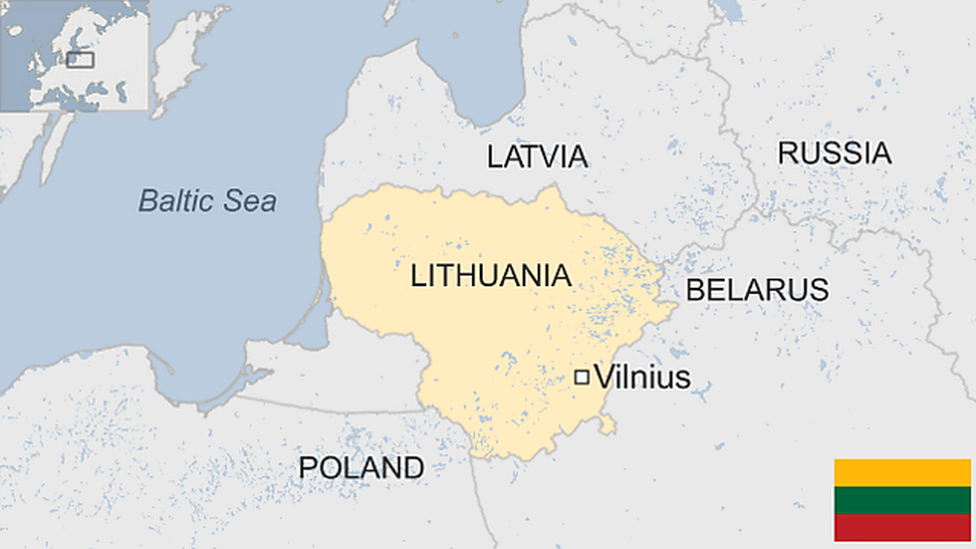Sweden country profile
- Published
This page is no longer being updated. It was last updated on 29 March 2023

Sweden's position as one of the world's most highly developed post-industrial societies looks fundamentally secure.
Unemployment is low and the economy strong. Public-private partnership is at the core of "the Swedish model", which was developed by the Social Democrats, who have governed for most of the time since the 1920s.
This mixed economy traditionally featured centralised wage negotiations and a heavily tax-subsidised social security network. The Swedes still enjoy an advanced welfare system, and their standard of living and life expectancy are among the highest in the world.
Relative to its population size, Sweden has taken in far more migrants than any other EU country since the beginning of the migration crisis in 2015. This has put pressure on public services, and prompted a rise in support for the far-right Sweden Democrats party.
Sweden is known throughout the world for its neutrality. With the ending of the Cold War, Sweden felt able to join the European Union in 1995. It further altered its long-standing neutrality in the wake of Russia's invasion of Ukraine and, with Finland, applied to join Nato in 2022.
Read more country profiles, external - Profiles by BBC Monitoring, external
KINGDOM OF SWEDEN: FACTS
Capital: Stockholm
Area: 450,295 sq km
Population: 10.4 million
Languages: Swedish, plus Sami, Finnish, Meankieli, Romani, Yiddish
Life expectancy: 81 years (men) 85 years (women)
LEADERS
King: Carl XVI Gustaf
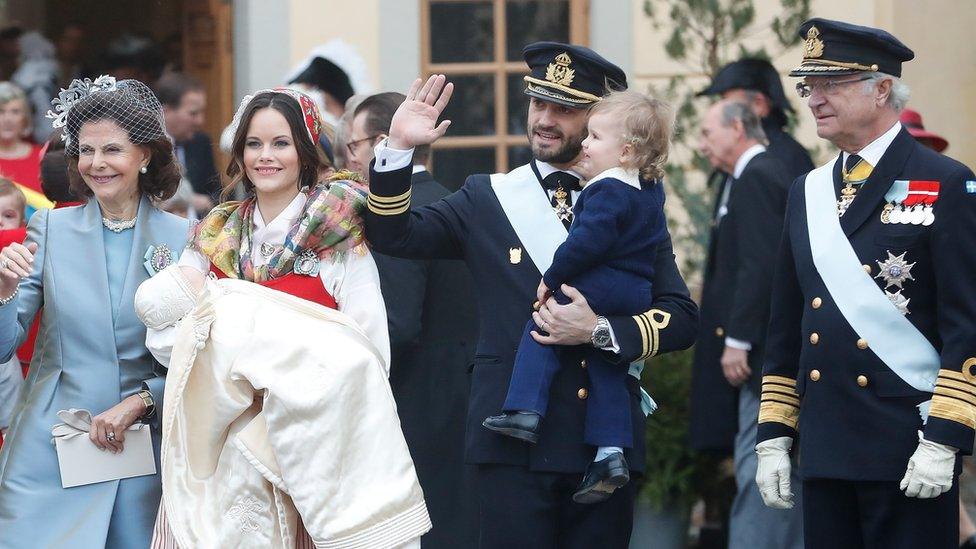
King Gustaf, pictured at right with the royal family, has a purely ceremonial role
King Carl XVI Gustaf ascended the throne in 1973, on the death of his grandfather Gustaf VI Adolf. The current king's father died in a plane crash in 1947, when Carl Gustav was only nine months old.
During his long royal apprenticeship, Carl Gustav underwent the usual military training, but also studied history, politics and economics, served in the diplomatic corps, and worked in banking and commerce.
Constitutional changes in 1974 deprived the king of all but ceremonial duties, such as opening parliament and representing Sweden at the diplomatic level.
Prime minister: Ulf Kristersson
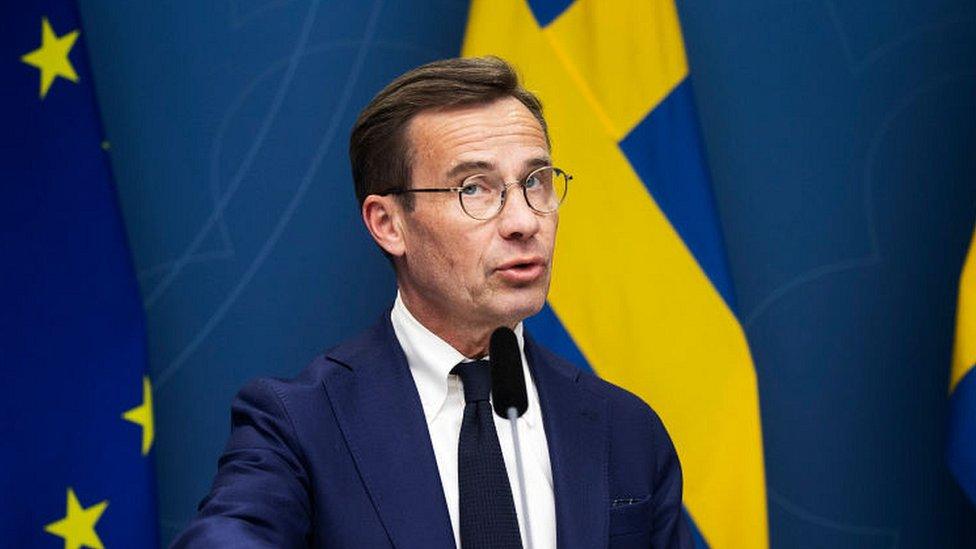
Ulf Kristersson became prime minster following the September 2022 general election. He heads a coalition government between the Moderate Party, Christian Democrats and Liberals, with external support from the far-right Sweden Democrats.
MEDIA
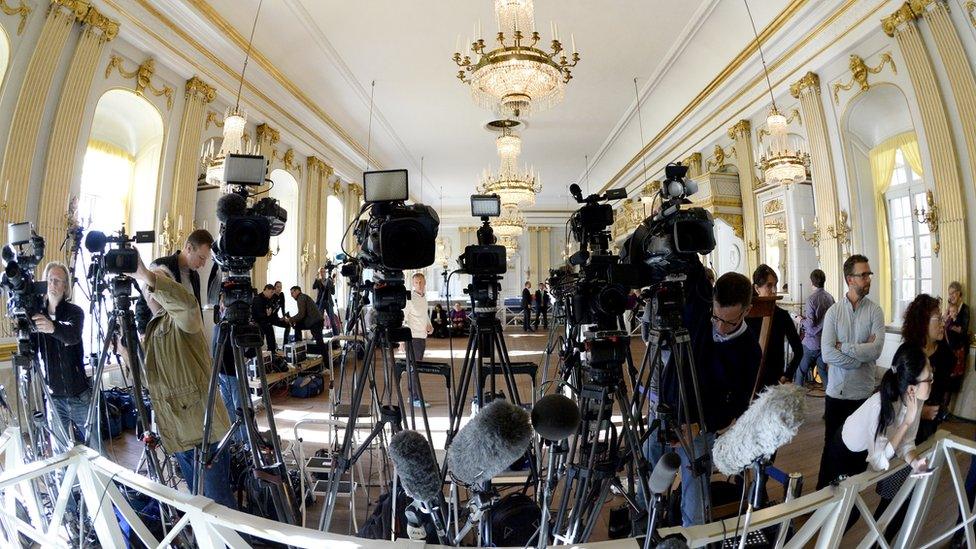
TV cameras covering a Nobel prize announcement at the Swedish Academy in Stockholm
Swedish audiences enjoy a wide variety of public and commercial broadcast services.
TV is the most-popular medium. Public Sveriges Television's (SVT) main competitor is commercial network TV4. Sweden is home to the regional media giants Bonnier and the Modern Times Group (MTG).
Most households have multichannel cable or satellite TV. Sweden has made the switch to digital terrestrial TV (DTT) and pay TV is broadcast in the format.
Public radio is run by Sveriges Radio. There are nearly 100 private radios; some are part of near-national networks.
Read full media profile
TIMELINE

Aurora borealis or Northern Lights over a frozen forest in Kiruna, northern Sweden
Some key dates in Sweden's history:
17th Century - Sweden develops as a major European power, rising to prominence under Gustavus Adolphus, seizing territories from Russia and the Polish-Lithuanian Commonwealth in multiple wars including the Thirty Years' War.
1700-1721 - Great Northern War sees a coalition lead by Russia under Peter the Great successfully contest the supremacy of the Swedish Empire in Northern, Central and Eastern Europe.
18th Century - Sweden gradually loses its remaining territories outside Scandinavia.
1810 - One of Napoleon's Marshals, Jean-Baptiste Bernadotte, is chosen as heir to the throne - establishing the House of Bernadotte.
1814 - Sweden forces Denmark-Norway, an ally of France, to cede Norway. Norway is joined in a personal union with Sweden under the Swedish crown.
1905 - Union between Sweden and Norway peacefully dissolved.
1914 - Outbreak of World War One. Sweden remains neutral.
1920s - Sweden develops from an agricultural into an industrial society. Social democratic governments enact social reforms.
1939 - At the outbreak of World War Two, Sweden declares neutrality.
1952 - Sweden becomes founder member of the Nordic Council.
1959 - Sweden becomes founder member of the European Free Trade Association (EFTA).
1971 - The two-chamber parliament is replaced by one chamber elected by proportional representation.
1975 - Further constitutional reforms enacted. The last remaining powers of the monarch are removed, so that his duties become purely ceremonial.
Early 1980s - Relations with the Soviet Union deteriorate when Soviet submarines are suspected of infiltrating Swedish territorial waters.
1986 - Prime minister Olof Palme is assassinated in Stockholm. Sweden is plunged into shock, and the conduct of the police investigation prompts public criticism. In 2020, police conclude the killer was Stig Engstrom, a troubled man who disliked the prime minister and committed suicide in 2000.
1994 - Swedes narrowly support EU membership in a referendum.
2000 - Official opening of new bridge and tunnel linking Malmo in southern Sweden and Danish capital Copenhagen.
2003 - Foreign Minister Anna Lindh dies from stab wounds after being attacked in a Stockholm department store.
Referendum vote goes against joining the single European currency.
2004 - Man who confessed to killing Anna Lindh on impulse is convicted of her murder.
2009 - The government reverses a 30-year-old policy of phasing out nuclear power, saying new reactors are needed to fight climate change and secure energy supplies.
2011 - Swedish car maker Saab files for bankruptcy after failing to attract a buyer for the ailing business.
2022 - Following Russia's invasion of Ukraine, Sweden and Finland apply for Nato membership.
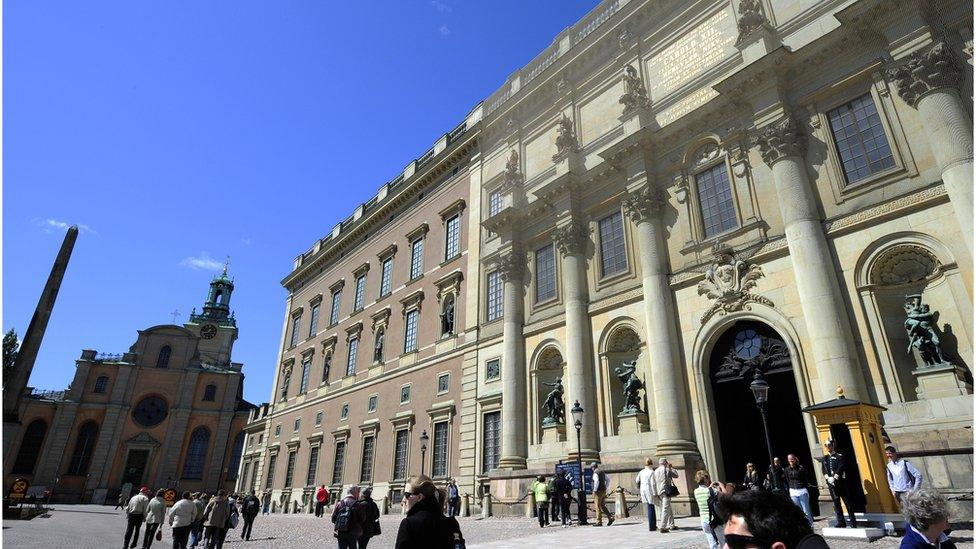
Swedes' standard of living and life expectancy are among the highest in the world.
- Published8 January
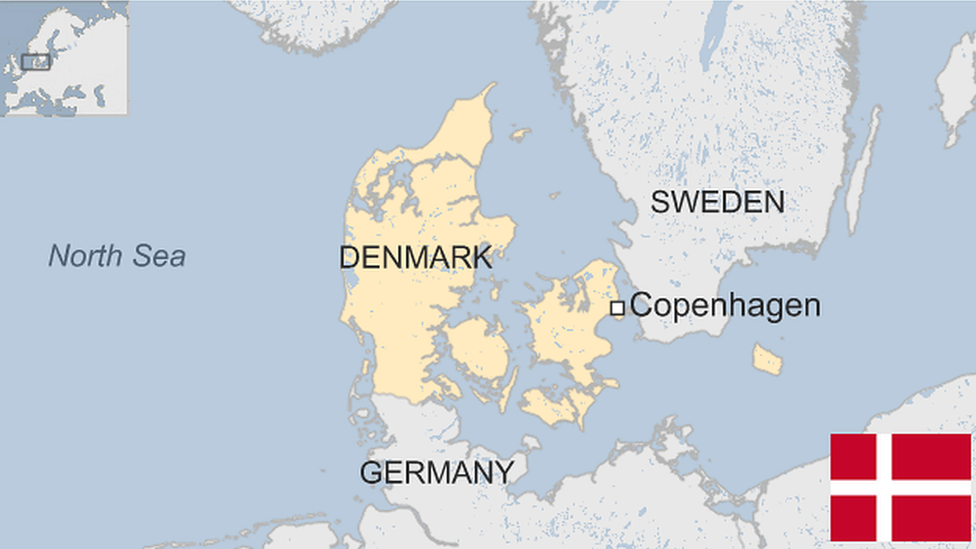
- Published28 March 2023
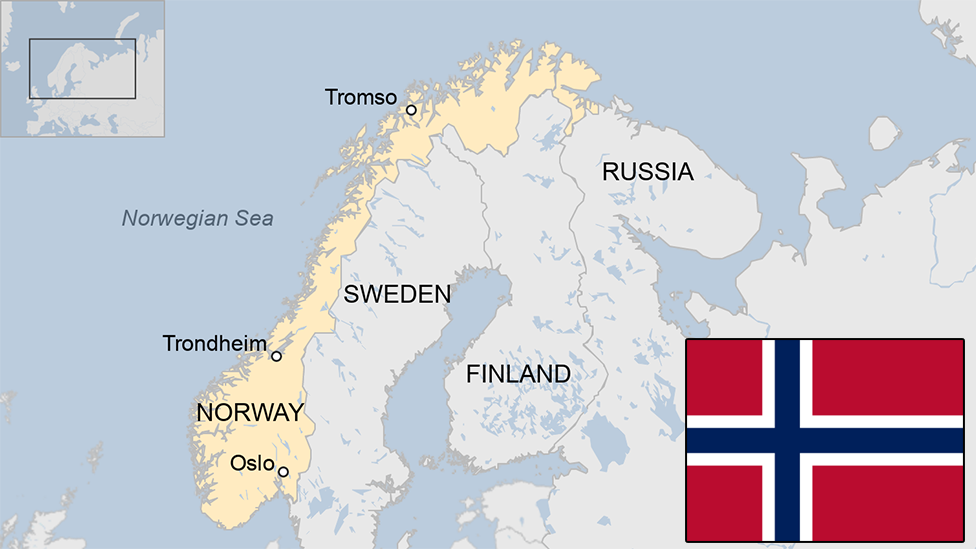
- Published25 March 2024

- Published13 February 2024
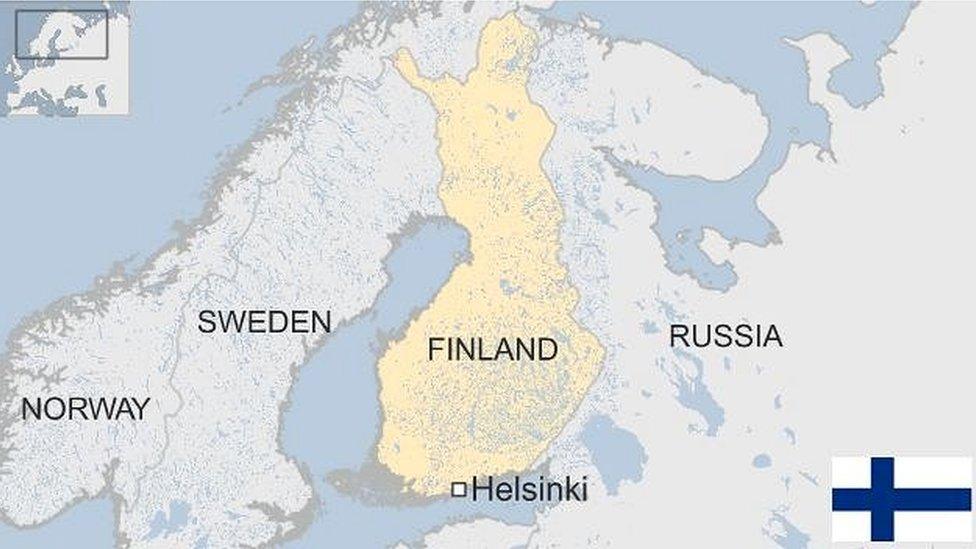
- Published23 July 2024
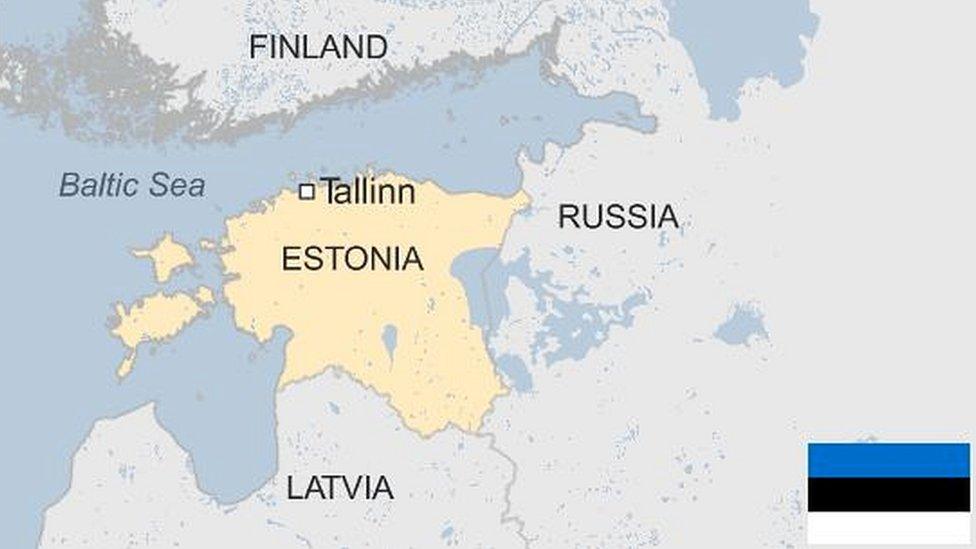
- Published22 August 2023
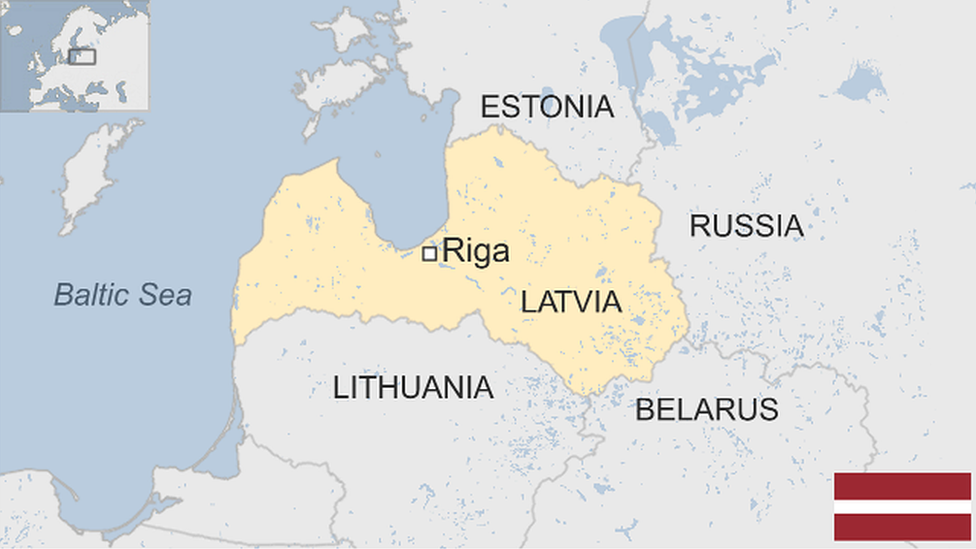
- Published25 November 2024
